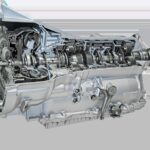Deciding whether to repair your car or sell it can be a stressful dilemma for any car owner. It’s a crossroads that blends emotional attachment with hard financial realities. When faced with a breakdown or costly repair, the question “should I repair or sell my car?” becomes paramount. This guide will walk you through the key considerations to help you make an informed decision that suits your needs and financial situation.
Assessing Your Vehicle’s Condition
Before making any decisions, it’s crucial to honestly assess the overall condition of your car. Consider factors beyond just the immediate repair needed. How old is your vehicle? What’s the mileage? Are there other underlying issues you’ve been ignoring? A seemingly simple repair might be the tip of the iceberg if your car is aging and has accumulated significant wear and tear. Take stock of both mechanical and cosmetic issues to get a clear picture of your car’s health.
Estimating the Repair Costs
Once you understand your car’s condition, the next step is to get a reliable repair estimate. Don’t rely on ballpark figures; get a detailed quote from a trusted mechanic. Understand exactly what the repair entails and if there are any potential hidden costs. Compare quotes from different shops to ensure you’re getting a fair price. Consider whether the current repair is a major, engine- or transmission-related issue, or a more minor fix like brakes or tires. The severity and cost of the repair will heavily influence your decision on whether you should repair or sell your car.
Determining Your Car’s Market Value
Knowing your car’s market value is just as important as knowing the repair costs. Use online valuation tools like Kelley Blue Book or Edmunds to get an estimate of your car’s worth in its current condition. Factor in mileage, age, and any existing damage when assessing the value. Compare this market value to the repair estimate you received. If the repair cost is a significant percentage of your car’s value, selling might become a more financially sensible option.
The Repair vs. Sell Checklist
To simplify your decision-making process, consider this checklist:
- Repair Cost vs. Car Value: Is the repair cost less than the car’s market value? Significantly less?
- Safety and Reliability: Will this repair make your car safe and reliable for the foreseeable future, or are there likely more issues on the horizon?
- Long-Term Ownership: Do you plan to keep the car for many more years if repaired, or are you already considering an upgrade soon?
- Financial Situation: Can you comfortably afford the repair, or would that strain your budget? Could selling and getting a newer, more reliable car be a better long-term investment?
When Repairing Might Be the Right Choice
Repairing your car often makes sense when:
- The repair is relatively minor and affordable.
- Your car is otherwise in good condition and reliable.
- You have a sentimental attachment to the vehicle.
- The repair cost is significantly less than the car’s value.
- You are not ready or able to purchase a new vehicle.
When Selling Might Be the Better Option
Selling your car might be the wiser choice when:
- The repair costs are substantial and approach or exceed the car’s market value.
- Your car is old, unreliable, and has ongoing issues.
- You are looking for an upgrade to a newer, more reliable, or more fuel-efficient vehicle.
- You are concerned about future repair costs and want to avoid further financial burdens.
- Selling your car and using the funds towards a new or used car aligns better with your long-term transportation needs and financial goals.
Making Your Decision
Ultimately, the decision of whether you should repair or sell your car is personal and depends on your unique circumstances. Carefully weigh the repair costs against your car’s value, consider its overall condition and your long-term needs. By thoroughly evaluating these factors, you can confidently decide whether to invest in repairing your current car or move on to a new driving chapter.


